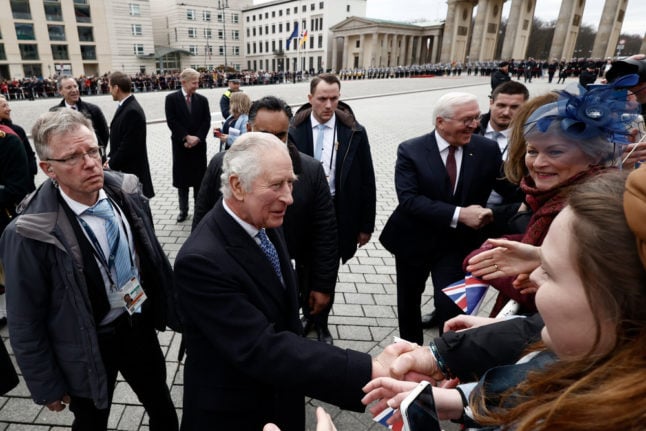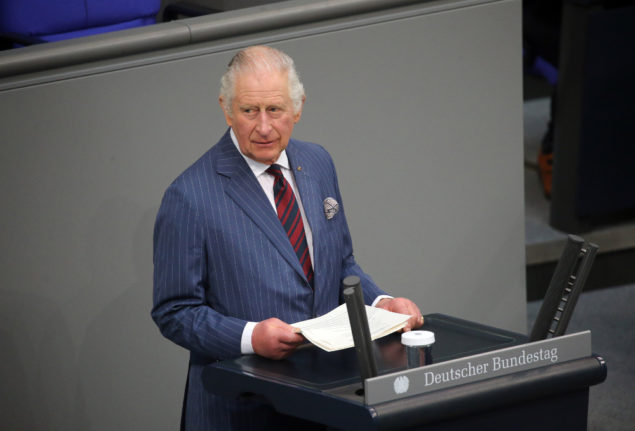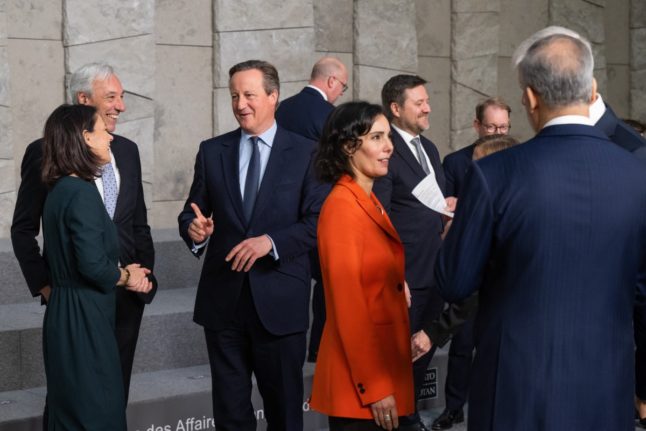Speaking mostly in German through the 30-minute speech, Charles underlined that “the scourge of war is back in Europe, the war of aggression against Ukraine has brought unimaginable suffering on so many innocent people.”
“The security of Europe as well as our democratic values are under threat. But the world did not stand idly by… we can draw courage from our unity,” he added.
Charles is on his first state visit since ascending the throne following the death of his mother Queen Elizabeth II last year, and his choice to travel to Germany has been viewed as a bid to build bridges following Brexit.
In Germany, the themes of reconciliation and a future ahead forged by common values have featured prominently in his speeches.
Charles has blood ties to Germany, but the two countries had fought on opposing ends during two devastating world wars.
Speaking at the Bundestag on Thursday, he pointed to how far Britain and his hosts’ country had come in putting behind their conflict-ridden past as he underlined the common values they now share.
“Together we must be vigilant against threats to our values” and face them down resolutely, he said.
First trip abroad
Germany marks the first trip abroad for Charles since ascending the throne, which is being interpreted as a “strong gesture” to build post-Brexit ties with the continent.
Arriving for his three-day trip on Wednesday, he and Queen Consort Camilla were greeted with military honours at the Brandenburg Gate, the first time the iconic site had lent the backdrop for such a ceremony.
READ ALSO: ‘New chapter’: Charles III in Germany for first foreign trip as king
Speaking at a state banquet hosted by German President Frank-Walter Steinmeier, Charles hailed the “enduring value” of the UK’s relations with Germany.
The two countries’ joint support for Ukraine in its battle against Russia’s unprovoked aggression epitomised their commitment to “protecting and advancing shared democratic values”, he added.

Reconciliation
Thursday will not be the first time Charles found himself standing at the lectern of the German lower house.
In November 2020, the then-crown prince addressed German lawmakers on the occasion of Remembrance Day in a highly symbolic gesture marking post-war reconciliation between the two countries.
“We have you and your family to thank for the work of reconciliation, the deep friendship between our two people,” said host Steinmeier.
Charles’ mother, the late Queen Elizabeth II, had been a symbol of rapprochement after two devastating World Wars in which the countries found themselves on opposing sides.
It was World War I that had led the British royal family to drop their German name — Saxe-Coburg and Gotha — for Windsor.
Charles, who speaks fluent German in a nod to his blood ties to the country, was already expected to make his Bundestag address partly in the hosts’ language.
Following the engagement, Charles is set to meet Ukrainian refugees before travelling to neighbouring state Brandenburg where he will speak with a German-British battalion.
A tour of an organic farm is also on the programme with environmental issues, which Charles championed long before he became Britain’s sovereign, featured prominently in his three-day programme.
Among his first engagements on Wednesday was a reception on sustainability, where he met with Foreign Minister Annalena Baerbock and Economy Minister Robert Habeck, both from the Greens party.
On Friday, in the port city of Hamburg, he will tour a renewable energy project.
Charles, who has visited Germany 40 times, has always made sustainable farming a part of his visits to the country.
The monarch’s decades-long commitment to green farming has partly been nurtured by German professor Hardy Vogtmann, a leading voice on organic agriculture who became Charles’ advisor in the 1980s.
During one visit to Germany in 1997, Vogtmann arranged for Charles to tour several eco projects in the western state of Hesse, culminating in Charles jokingly being gifted a bag of compost.
On another occasion in 2013, the Welt newspaper said Charles was “clearly in his element” chatting to organic farmers and stroking a piglet on a field in Langenburg, north of Stuttgart.
In 2019, Camilla joined her husband on a tour of an organic farm in Glonn, near Munich, where Charles gamely held a rooster in his arms.
The British monarch was initially supposed to travel to France before heading on to Germany, but the trip was postponed in the wake of violent pension reform protests.



 Please whitelist us to continue reading.
Please whitelist us to continue reading.
Member comments